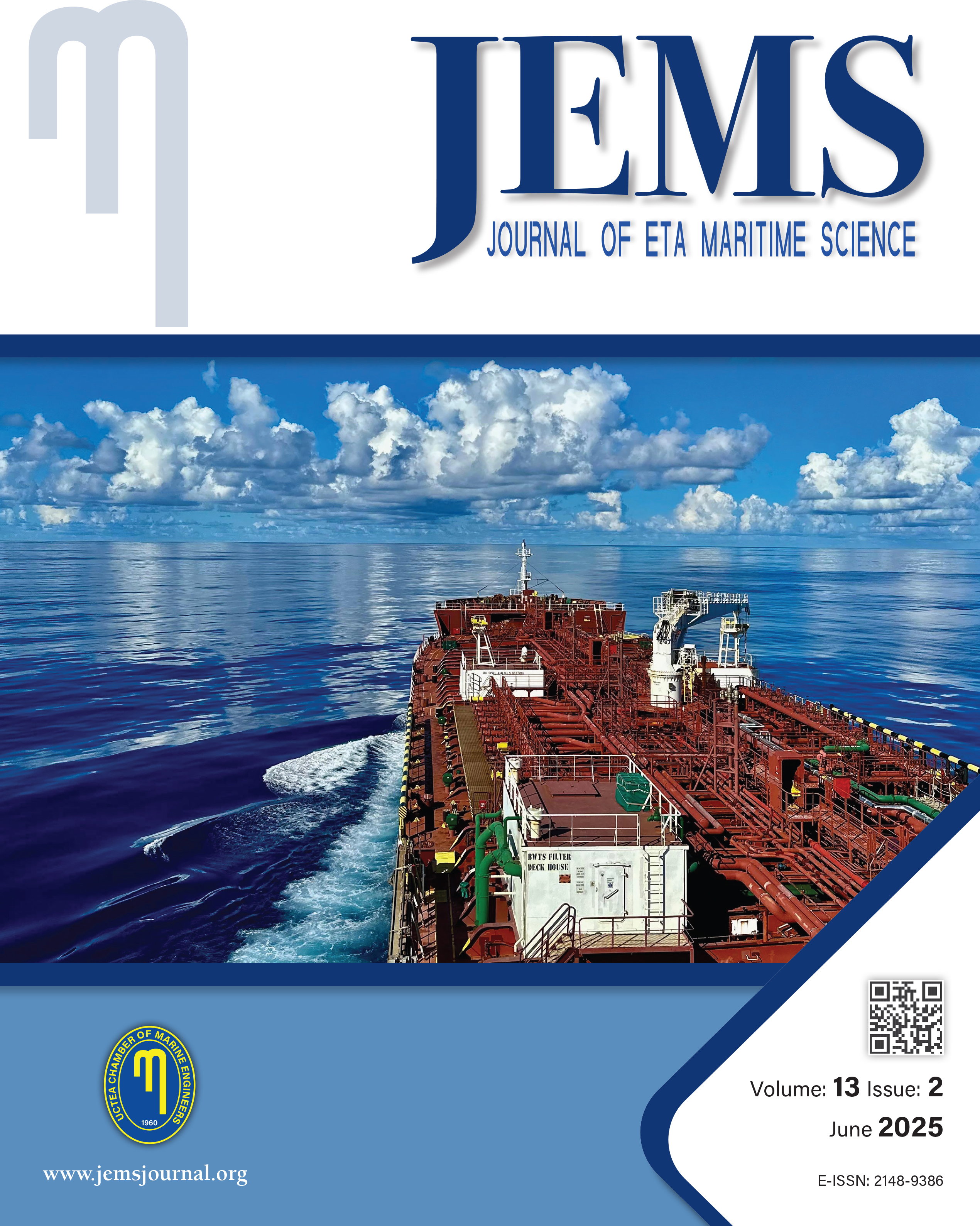

JEMS apply the Creative Commons Attribution NonCommercial 4.0 International Licence to all manuscripts to be published
Modeling and Analysis of Container-Type Ships Marine Propeller for Engine Load Conditions
İsmail Çiçek1, Naz Yılmaz21İstanbul Technical University Maritime Faculty, Department of Marine Engineering, İstanbul, Türkiye2İstanbul Technical University Graduate School, Department of Maritime Transportation Engineering, İstanbul, Türkiye
Engine room simulators have become increasingly important in practical marine engineering training and education. To ensure their usefulness in both training and academic studies, it is essential to accurately model, simulate, and validate ship propulsion systems within these simulators. This study outlines the design and development of a marine propeller and its hydrodynamic performance analysis using computational fluid dynamics (CFD). To obtain sampled ship and propulsion parameters, a large container-type vessel model in an existing engine room simulator was employed. This study includes the design and development of a new efficient propeller and its propulsion data, which can be used in the development of an engine room simulator. This study demonstrates a methodology for developing training simulators that involve using complex and extensive mathematical modeling. The ships geometry was designed using 3D modeling software such as Rhinoceros and Maxsurf. To determine the required thrust at each of the main engines loading modes, the ships resistance computations were conducted using Maxsurfs HullSpeed module. The authors also developed a MATLAB code to obtain the ships power requirements. The ship resistance and thrust requirements data were then used as input to design the propeller, and CFD analyses were conducted for the defined engine load conditions. The hydrodynamic performance coefficients of the newly designed propeller were computed, and the CFD results were compared with the existing propellers performance data. The resulting propulsion data presents the performance parameters for each predefined engine load condition. The analysis demonstrated that a more efficient marine propeller was designed, providing more thrust (up to 9% for a specific mode) while consuming less power compared with the existing one.
Keywords: Propeller design, Container ship, Computational fluid dynamics, Engine load conditions, Engine room simulatorManuscript Language: English
(756 downloaded)










